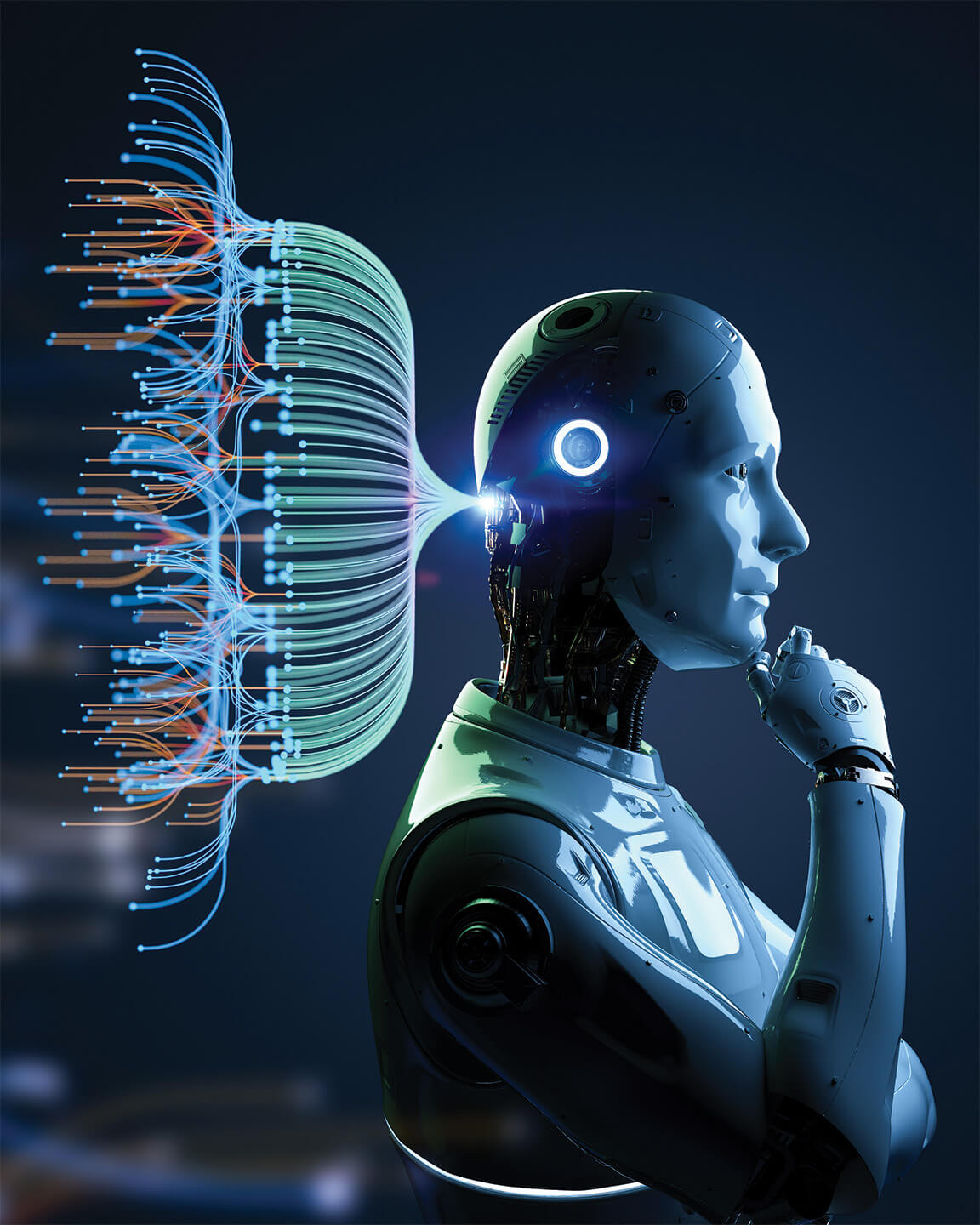
”By automating repetitive tasks, we free up our team to focus on strategic, high-impact work. This boosts productivity and ensures we’re making the most of our resources.
Tim HillisonFounder & CMO, Entry Point 1
The new age of integrating automation, AI and storefront technology
A few years ago, Yevhenii Tymoshenko helped organize a photo exhibition at the PhotoPlus Expo in New York City (which today is the Create NYC in Brooklyn). In Tymoshenko’s recollection of the experience, the event involved a slew of details that had to be taken into account. To help lessen the load, she opted for an event management software with Artificial Intelligence (AI) capabilities. The tools helped Tymoshenko and her team track everything in real time, automating tasks like sending out follow-up emails, analyzing attendee behavior, etc.
“The technology was revolutionary for us,” says Tymoshenko, who today is CMO for Skylum, a software development company known for its photo editing software. “By tapping into technology, we were able to ensure smooth operations, as well as help us engage with our audience more effectively.”
Today, Tymoshenko continues to lean on automation to help keep her supply chain process running smoothly and efficiently, as well as to personalize its marketing strategies. “The key is to connect with the right audience at the right time with the right message. This helps make our campaigns more effective and has boosted customer engagement.”
If you take a deep dive into the new age of automation in event supply chain marketing, you will find that cutting-edge technologies are reshaping the industry in profound ways. From streamlining processes to reducing waste and optimizing inventory management, these continual advancements are not only driving efficiency, but also helping take the customer experience to new heights.
When Josh Lamerton was looking for ways to further empower the real estate professionals his company, PropTexx, works with to streamline their perspectives on property listings, he incorporated the power of automation and AI into the process. The company continues to use technology to leverage advanced machine learning algorithms that offer personalized home customization options directly to its clients’ websites.
“This level of automation means users can interact with listings more dynamically, leading to higher engagement without requiring manual input,” says Lamerton, who co-founded the company in 2020. “For example, when a user specifies their preferences, it automatically generates tailored visualizations and suggestions, transforming the browsing experience and reducing the workload on our clients.”
By embracing the power of automation and AI, PropTexx has significantly optimized its marketing supply chain by automating user engagement and lead capture processes. The automation has led to measurable improvements in several areas: increased lead conversion rates, reduced manual workloads and enhanced data utilization.
“By offering personalized experiences and immediate visual feedback, we’ve observed a 35% increase in lead conversion rates across client websites,” Lamerton says. “[They] report a 50% reduction in time spent manually following up with potential leads, as the AI handles much of the initial engagement. And our AI analytics provide real-time insights into user preferences and behaviors, allowing for more strategic marketing decisions. This has led to a 25% improvement in campaign targeting accuracy.”

”By offering personalized experiences and immediate visual feedback, we’ve observed a 35% increase in lead conversion rates across client websites.
Josh LamertonCo-founder, PropTexx
What’s in store... and more
When Lamerton looks into what the future holds in today’s ever-evolving technological landscape, he sees a path into immersive technologies such as augmented reality (AR) and virtual reality (VR). Both, he believes, will play a crucial role in revolutionizing the marketing supply chain. “We’re currently exploring the integration of AR/VR capabilities into our process—one that would allow users to take virtual tours directly from their devices. This advancement will further personalize the experience and provide even more value.”
Additionally, the PropTexx team is investing in AI-driven content generation and conversational AI to provide real-time assistance and recommendations, ensuring that its clients stay ahead in a rapidly changing market. “Our commitment to innovation ensures that we remain at the forefront of these developments, continually enhancing the PropTexx platform to meet the future needs of the real estate industry,” Lamerton says.
In his work on marketing initiatives for world-renowned brands like Visa, Microsoft and PayPal, Tim Hillison has had a front-row seat for how innovation can revolutionize the supply chain process. As founder and CMO of the growth advisory consultancy Entry Point 1, he has successfully launched over $1 billion in products and campaigns and has spearheaded global go-to-market strategies around the world. While Entry Point 1 does not manage physical inventory, the technology it uses has been instrumental in helping reduce waste and improve efficiency, especially in managing its resources and delivering results for its clients.
“While we don’t deal with physical inventory, we treat our marketing assets, time and effort as valuable inventory that requires careful management,” Hillison says. “AI and automation help us streamline processes, cutting down on wasted time and effort. By automating repetitive tasks, we free up our team to focus on strategic, high-impact work. This boosts productivity and ensures we’re making the most of our resources.”
The company also combines intent and signals-based data with predictive analytics to anticipate demand for specific strategies. By analyzing trends, customer behavior and real-time signals, Hillison and his team can forecast which approaches will be most effective, allowing them to allocate resources where they’ll have the greatest impact.
“This approach shows how we combine technology with expertise to transform the customer experience at every stage of the marketing supply chain,” Hillison says. “We focus on helping our clients understand their future customers and make smarter marketing investments. Marketing is a social science, so we start with a solid understanding of our clients’ ideal customer profiles (ICP), shifting buying behaviors and the competitive landscape. This helps us create differentiation that truly connects with both their products and buyers.”
